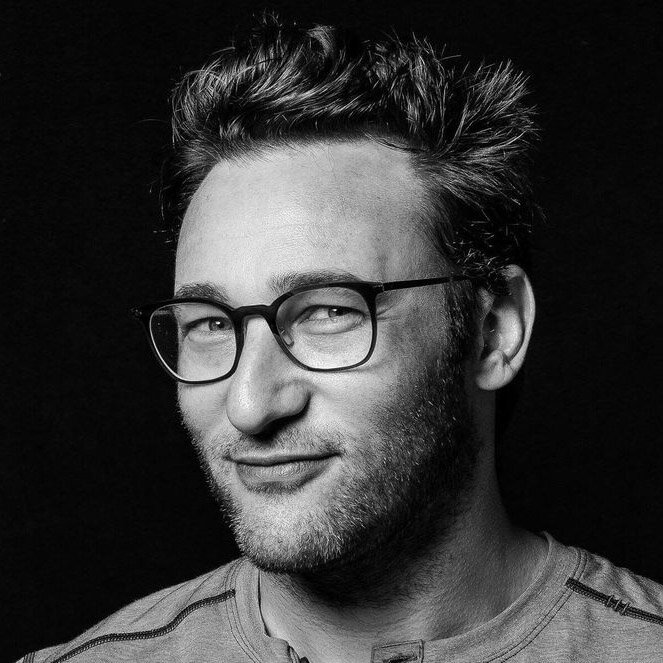Brand purpose was first to shine a light. Brand activism could end the darkness.
Nike’s reputation has strengthened as a result of this award-winning campaign featuring brand ambassador and activist quarterback Colin Kaepernick.
I love Southern California. The desert. Love it. So I was happy to head out there to give a presentation/TED Talk thing at one of our client’s annual sales meetings. It was to be a talk on “brands.” Branding. Whatever. Something to do with marketing. I suggested we refine the subject slightly to “brand authenticity,” something I care about. The talk went great. Just absolutely perfect. Right up to the Q&A.
Click here to see the presentation
Just as I’m just wrapping up the Q&A, a guy in the way back says, "I don’t know. I mean, so let’s say you do the whole brand purpose thing… and then all your competitors do the brand purpose thing. Because they do. They are. So everyone’s doing brand purpose now. I have a purpose, you have a purpose, everyone has one… how does that help me? Or is just more… you know… ”
I didn’t fill in the blank for him.
“Crap,” he finally says.
The group chuckles. The chuckle gives way to quiet. I hazard the following answer.
“Good question. I mean… for me, brand purpose isn’t something you really ‘do’ and are ‘done with.’ It’s not a finite task, not something you move on from. Brands don’t really ‘finish’ their purpose, you know? I mean, purpose is just not a finite thing like a new biz pursuit or something. You are always doing it, always making good on it—and that’s how you create value. Just staying engaged in that process.”
I know. Trust me, I know.
And it only got worse from there. He pushed back some, and the exchange eventually ended with me offering a few half-thoughts and idea particles. He obviously wasn’t convinced. I obviously wasn’t succeeding.
“This [expletive] guy,” I remember thinking to myself. “There really is one in every crowd.”
Here’s why I was tongue-tied. Too often, brand purpose is a backward-looking exercise. Even the language we use to talk about it — it’s just not forward-looking enough. My problem was that the answer I was trying to offer really hadn’t been articulated yet. Or at least, I didn’t have it. But I believe now it has.
“purpose or no purpose, brands differentiate themselves by what they do”
The term I needed was and is brand activism. So now—a year later, having replayed this exchange in my head a million times—I’d revise my answer in the following way: your brand purpose isn’t the finish line; it’s the starting line.
“We put too much emphasis on ‘arriving at’ a brand purpose, as if now that we have it, we’re done. A good brand purpose articulates an idea to which your brand will be devoted going forward. Sure, your purpose statement may also outline the tools and messages you’ll use in the pursuit of that idea—but your purpose (your “why” statement) is a mandate for things to come. Not what has been. We don’t focus on that enough. Everything you do from that point on—everything you do to realize your purpose—that’s what differentiates brands. Not the fact that you have a purpose. It’s what you do to realize yours that will make your brand different and great. Purpose or no, brands differentiate themselves by what they DO. Purpose simply provides the direction; it doesn’t replace the actual doing. It’s the doing that differentiates you.”
Not much better? Fine. I admit the conversation gets pretty “meta” pretty quick. But I do believe the answer is true and accurate.
The point is, the goal is not to “have a purpose.” That’s like saying, “Now that we’ve written the Declaration of Independence, there’s really no need to fight the Revolutionary War.” Now that we have a purpose that says, “We exist to help people live better”, there’s no reason to actually lower our prices, keep our branches open later or improve the quality of our products.” It’s what you do to achieve your purpose that separates you. Again, the purpose is the start. It only exists to guide your leadership team’s decision-making toward some bigger idea that your brand serves.
All the great things brands do to make good on their purpose—all that stuff has a name now: brand activism.
Brand activism is the other half of the brand purpose dogma. It’s been the missing half. Activism is the yin to Purpose’s yang. Without one, the other is worthless—or at least hollow. And I think that’s what the guy from my authenticity presentation was really getting at. The Purpose movement created by Simon Sinek (Sinek’s now famous “Start With Why” TED Talk) has always suggested activism, but its importance has never been as clear as it should’ve been.
Purpose is not about taking everything you currently do—or have done—and making it fit into the most noble idea you can. If anything, purpose puts a new onus on a brand to create new and better products, programs and profits. A purpose is a mandate. Of course, some of your existing programs and products will fit into your new purpose—but they are not the end-all be-all. They are the beginning. Purpose says, “This will guide the design and creation of all future products, programs and services.”
Simon Sinek, Author “Start With Why”
Brand activism is finally making all that clear. It’s finally demanding that brands actually do something with their respective purposes. Which is much harder than writing a purpose statement. It’ll force a lot of tough conversations in the boardrooms across the world. “Is this something we’re really doing or something we’re just saying?”
Ultimately, I think this is where my friend from Palm Springs and I diverged. He very clearly saw brand purpose as an end result. Like heated seats in a car. Toyota has them, so does Ford, so do Chevy, Fiat and Tesla. “So heated seats are a wash, right?”
Wrong.
You have a map and I have a map. Both maps lead to untold treasures. What differentiates me from you isn’t that I have a map, that much of his argument is true. What differentiates me is that I am actively engaged in searching for my treasure, while you’re content to show off your map. What differentiates me from you is that I know the harder I search, the more help I will get and that, when I do find my treasure, it won’t just differentiate me from you—it’ll separate me from every other explorer that’s ever been.
“every little kid knows that ‘saying you’re helping’ is not the same as ‘actually helping,’ but for brands it is.”
If you’re like me, you’ve watched the world and the United States in particular teetering on the edge of chaos these past nine months (read: four years). And if you’re like me, you may have also wondered at some point, “Where are all of our supposedly intrepid, visionary leaders from the corporate world? Why aren’t they doing anything? Where are Elon Musk and Mark Zuckerberg, where are Sergei and Larry? Where’s Jack Ma? (Dorsey has tried, at least.) They have as much influence as anyone alive. Why don’t they do more?”
The reason is this: because they don’t have to. Because, so far, their words have been enough. Their ads have been enough. Their products have been enough. Every little kid knows that ‘saying you’re helping’ is not the same as “actually helping,” but for brands it is. At least, it has been for a long time. The truth is, saying something works just as well as doing something—and at a fraction of the price. But brand activism could change that once and for all.
So if you’re like me, maybe you too should celebrate and help us usher in the age of brand activism. Maybe now we finally have the language that I lacked in Palm Springs. Maybe we have the right words to demand that brands actually do something. And thanks to the continued popularity of brand purpose over the past five to 10 years, most brands already have the map. Now they just need to get out there and start doing the work.
AirBnB “We Accept” Super Bowl ad spoke out against the Trump administration’s travel ban while addressing discrimination across the company’s platform.
That’s what I mean when I say brand activism is the other half of brand purpose. When purpose meets activism, brands will have everything they need to become agents of social change—to really improve this world. Not just say they’re improving the world. They may say they don’t have that kind of power, but they do. They absolutely do. And now—maybe for the first time—they have the tools to do it.
Imagine when we start seeing groups of brands united by a single purpose. Imagine if Tesla, Amazon and Apple were all working toward one purpose… Imagine what they could do. I mean… Imagine that.



